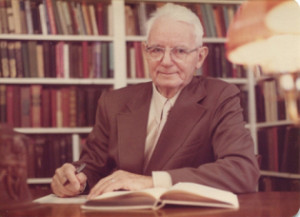Category: Nextor
-
De-mythologising the mythology of Joseph Campbell.
Recently I was directed to a short video of Joseph Campbell giving an interview to give comment and know what my thoughts were. This is the video in question.
I found there to be a few issues with the kind of philosophy that was being proposed, certainly from that proposed in the video, and other aspects given elsewhere.
Mr Campbell proposes that the mind is a secondary organ, and that it must not be in control, lest it fall victim to following a particular kind of ‘system’. One could only speculate how he knows this is the case – is …
-
What is the evidence for the existence of God? (1/3)
This would probably be a very easy question to answer, and yet at the same time, a fairly lengthy question to answer.
I will try to keep this as accessible as possible, and translate a lot of the jargon that gets used when talking about these things into more readily understandable ideas and explanations.
The easiest answer is: everything.
(Rom 1:20: For since the creation of the world God’s invisible qualities–his eternal power and divine nature–have been clearly seen, being understood from what has been made, so that people are without excuse.)Everything is evidence for God’s existence. And not …
-
Reconciliation, not introduction.
2 Cor 5:17-21 ESV
Therefore, if anyone is in Christ, he is a new creation. The old has passed away; behold, the new has come. All this is from God, who through Christ reconciled us to himself and gave us the ministry of reconciliation; that is, in Christ God was reconciling the world to himself, not counting their trespasses against them, and entrusting to us the message of reconciliation. Therefore, we are ambassadors for Christ, God making his appeal through us. We implore you on behalf of Christ, be reconciled to God. For our sake he made him … -
God is unity.
I have been reading through John Gill’s works on the nature and attributes of God, and am struck with how perfect and united all of God’s attributes are.
Consider a few examples:
God is infinite: God is without bounds, immeasurable, uncontained and without limits. This necessitates two further attributes: Omnipresence and Eternity. Why? Because God is both unbound and without limits in everything, which includes both space and time.
What follows on from here? Well, if we consider that God upholds all things by His power, then that necessitates omnipotence – because God upholds everything, His power must extend to …
-
An internal critique of the Christology and Theology proper of Jehovah’s Witnesses
 So, I had some interesting interactions with some JW’s over the weekend and something that was said was that they considered that Jesus was divine, but not God. Their explanation was that Jesus’ attributes mirrored those of Jehovah, with the exception of being created.
So, I had some interesting interactions with some JW’s over the weekend and something that was said was that they considered that Jesus was divine, but not God. Their explanation was that Jesus’ attributes mirrored those of Jehovah, with the exception of being created.Let’s see how much of a mirror it is then with that ‘one exception’.
Let’s get a list of some of God’s attributes in front of us first and see how it holds together:
God’s immutability & self-sufficiency.
God does not change, He remains the same yesterday today and forever, and in Him there is no … -
Why God’s common grace is necessary for apologetics.
 “When the case has been boldly made that the unbeliever must repent and admit to his suppressed knowledge of God if he is to have theoretical grounding for any knowledge whatsoever, then the Holy Spirit either opens his eyes at present or will do so at a coming day. In this present life God’s common grace restrains the apostate from utter intellectual self-destruction. While not positing neutral ground between the Christian and non-Christian interpretative systems, common grace nevertheless prevents the non-Christian from being consistent with his futile boast of autonomy. But in that coming day the unbeliever will cease to …
“When the case has been boldly made that the unbeliever must repent and admit to his suppressed knowledge of God if he is to have theoretical grounding for any knowledge whatsoever, then the Holy Spirit either opens his eyes at present or will do so at a coming day. In this present life God’s common grace restrains the apostate from utter intellectual self-destruction. While not positing neutral ground between the Christian and non-Christian interpretative systems, common grace nevertheless prevents the non-Christian from being consistent with his futile boast of autonomy. But in that coming day the unbeliever will cease to … -
Return of the Presuppositionalist: A counter-critique of a critique of presuppositionalism.
 I was sent a link to view (a 4 part series) which ended in a critique of presuppositionalism. The full article can be found here:
I was sent a link to view (a 4 part series) which ended in a critique of presuppositionalism. The full article can be found here:Revenge of Objectivity: Preunderstanding, Presuppositions, and First Principles (Part 4)
Feel free to read the whole 4 part series.
So, lets get started:
“Naturally, the same problems with any representationalist epistemology are also embedded in the representationalism found within the presuppositional system.”
Presuppositionalism runs on a revelatory epistemology, not a representationalist epistemology.
“While the Thomist would certainly agree that God is the ultimate cause of all reality other than Himself and that the universal forms …
-
Ancient Empiricism: Aristotle (Van Til’s Apologetic: Readings and Analysis, p329-333)
 Ancient Empiricism: Aristotle (139)
Ancient Empiricism: Aristotle (139)(A)In a non-Christian scheme of thought abstract universal and particulars stand over against one another in an unreconcilable fashion. Such was the case in Plato’s philosophy. Aristotle sought to remedy the situation by teaching that the universale are present in the particulars. But he failed to get genuine contact between them, inasmuch as for him the lowest universal (infima species), was, after all, a supposed abstraction from particulars. Hence the particulars that were presupposed were bare particulars, having no manner of contact with universality. And if they should, per impossible, have contact with universality, they would …
-
Van Til on the Modern Man’s View of Scripture.
 In response to A.E Taylor’s ‘Does God exist?’ Van Til writes:
In response to A.E Taylor’s ‘Does God exist?’ Van Til writes:“Taylor simply assumes that every human mind, that of an apostle no less than that of any other man, contributes in an original sense to what it receives. The result is that even if he could believe in a self-contained God – which on his premises he cannot – Taylor cannot believe that any man could receive any revelation from such a God without to some extent, in the very act of reception, confusing it with his own experiences that operate independently of this God.
The whole attitude of …